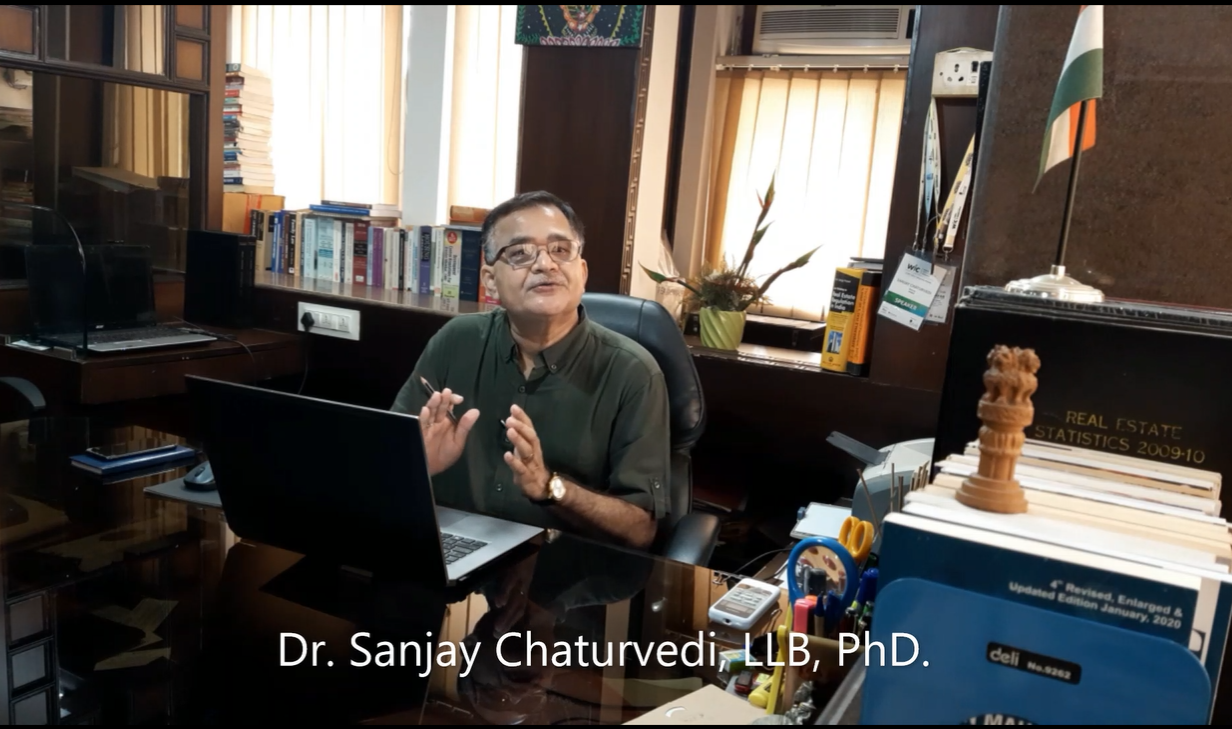 By Dr Sanjay Chaturvedi, LLB, PhD
By Dr Sanjay Chaturvedi, LLB, PhD
India established its constitution on 26th January 1950 and there were many Right and Privileges given to Indian citizens. Among them was “Right to Own a Property”. This right was taken a back by the government in 44th Constitutional amendment in 1978. It means we the Indian do not have Right to own a property. If the government wants it for Defense, Archeological purposes or for exploration of minerals or for infrastructure projects, they just have to give a notice and vacate. We do not have right to say NO to their order. Transacting above Rs.75 Lakh in Mumbai, Rs.50 Lakh in Delhi and likewise, we have to take NOC from Income Tax department. This is not a NOC. It is an offer to Income Tax Department, if they may please purchase it and if they refuse then only the seller is entitled to sell it.
The Farmers of Indian Constitution gave a Fundamental Right to own a property under Article 31 of the constitution of India.
Article 31 provided that “no person shall be deprived of his property save by authority of law.” It also provided that compensation would be paid to a person whose property has been taken for public purposes. The Right was restored by Article 300A which states:
Article 300A : Persons not to be deprived of property save by authority of law. No person shall be deprived of his property save by authority of law.
Which means, any Indian Citizen do not have a Fundamental Right to own a property now which was conferred by the Original Constitution of India. The Right under Article 300 A is a Constitutional Right and not Fundamental Right.
The difference in the two right is that in Fundamental Right, you can sell, dispose of your property any which way you want and for whatever consideration. But in Constitutional Right, you have to obey the Taxation, limits for transactions and pay Stamp Duty as per the Government derived indicative Recknor Rates. You cannot say to government to acquire your property/ land for public utility purposes like railways, dams defense etc.
Fundamental Right to own a property have gone and we need to live with only constitutional Right. The provision indicated
that a person can be deprived of his property only through an Act passed by the Parliament/State Legislature and not by executive order or fiat. The word „Law‟ in Art. 300A means an Act of Parliament or a State Legislature, a rule or a statutory order, having the force of law, that is positive or State-made law.
The fundamental „right to property‟ had been modified by the Parliament by several other Constitution Amendments. Art. 31-A, inserted by the Constitution First Amendment Act, 1951 with retrospective effect, saved laws providing for acquisition of estates of the nature referred to in various clauses thereof, declaring that such laws shall not be deemed void on the ground that they are inconsistent with, or take away or abridge any of the rights conferred by Art. 14 or 19 of the Constitution.
Hon’ble Supreme Court opined in State of Maharashtra v. Shandrabhai, AIR 1983 SC 803 that the fundamental „right to property‟ has been abolished because of its incompatibility with the goals of justice, social, economic and political and equality of status and of „opportunity‟ and with the establishment of a social democratic republic, as contemplated by the Constitution. Whereas Hon’ble Court have observed in Jilu Bhai Nam Bhai Khachar v. State of Gujarat, AIR 1995 SC 142. that the right to property‟ under Art. 300A is not a basic feature or structure of the Constitution. It is only a Constitutional right.
Paying compensation and what should be the value under the compulsory acquisition of various Land Acquisition Acts and recent amendments to the Land Acquisition Act shall be discussed in another article by me. But the question is, shall India again regain the Fundamental Right conferred by the Farmers of Indian Constitution?
 By Dr Sanjay Chaturvedi, LLB, PhD
By Dr Sanjay Chaturvedi, LLB, PhD





